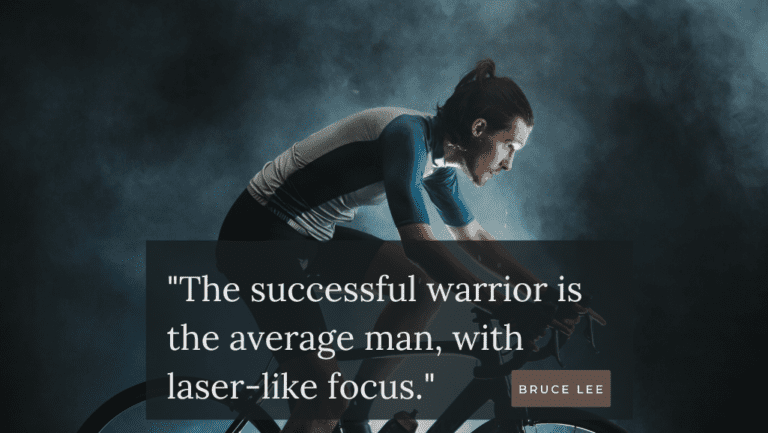Life is a journey of self-discovery and personal growth, and it doesn’t always come easy. We all have areas of our lives where we could use some personal improvement, whether it’s improving relationships, self-confidence, productivity, or any other aspect of our lives. The good news is that there are plenty of strategies available to help us achieve personal improvement and become the best versions of ourselves.
In this blog post, we will explore some of the most effective ideas and strategies for personal improvement, and share insights on how to make lasting changes in our lives.

Why do we seek personal improvement?
Personal improvement has been an ongoing trend for a while already. The quality of life has significantly improved, particularly in the Western world, and has remained relatively stable compared to previous centuries.
With survival and basic needs being largely met, we find ourselves more satisfied than ever before. Even to the point of satiation.
This shift in priorities has led us to seek something intangible and profound, a sense of fulfillment that goes beyond material possessions. Now, here we are, attending seminars, reading books, listening to podcasts, and healing childhood traumas.
Don’t get me wrong, there is nothing wrong with striving to improve yourself and different aspects of your life, BUT as long as you have VALID and SENSIBLE reasons behind it.
Therefore, it wouldn’t hurt to reflect on WHY self-improvement holds such significance for you.
It is very unfortunate and not uncommon to see that some people have turned their pursuit of self-improvement into their identity. They glorify it and use it as an excuse for everything.
When you meet such people they will make sure it is the first thing you know about them. They portray themselves as individuals with purpose and virtues, yet you sense an aura of implicit vanity and conceit emanating from them. It is not before long that you know that they are full of sham.
On the other hand, there are those who hold on to the belief that something is intrinsically wrong with them. They fanatically dedicate their lives to fixing problems, assuming inherent flaws within themselves.
Constantly feeling inadequate, they measure their own lives against unattainable standards they have adopted from observing the lives of others.
For such people, personal improvement is seen as a panacea for all their problems. But in reality appears a lifelong battle, with no light at the end of the tunnel.
WHAT PERSONAL IMPROVEMENT ISN’T
It is crucial to understand that self-improvement is not a salvation, quick fix, or some silver bullet that provides you with all the answers. It is not a guarantee of a big breakthrough or miracle transformation.
Self-improvement cannot be fueled by ego or societal pressure, it should not be motivated by comparing oneself to others or seeking external validation and approval.
Self-improvement is a personal journey towards growth, driven by self-awareness, self-acceptance, and a desire to become the best version of yourself.
When you adequately understand the concept of personal improvement and sincerely reconcile to the fact that there will be no magic, only then can you safely begin on your journey.
How to choose the areas for self-improvement?
When it comes to personal growth and development, having a clearly defined set of goals is vital. It’s what keeps us motivated and allows us to celebrate both small achievements and big wins. But how to figure out what improvements to aim for?
When I reflect on potential self-improvement goals for myself, I often ask
“How do I want to see myself?”
“What qualities would I admire if I were looking at myself from the outside?”
If I envision myself as someone who values good health, physical fitness, and an active lifestyle, then I know I should focus on improving in that direction.
Maybe I’ll sign up for tennis classes, commit to going dancing, or simply make sure I stick to my workout routine.
If I aspire to be a determined, self-sufficient, accomplished individual, then I’ll establish clear career objectives, learn how to set goals and meet deadlines, and not let occasional failures discourage me.
Or if I find myself admiring romantic and spiritual individuals, I’ll make sure to incorporate meditation and mindfulness into my routine. I’ll keep a journal, learn the art of letting go, and strive to live in the present moment, free from excessive planning.
But here’s the important thing: it’s crucial that your personal development goals ALIGN WITH YOUR TRUE LIFE VALUES. To achieve that, you want to be introspective and honest with yourself.
Note that you can’t be everything for everyone, you must choose your honest priorities and stick to them. And they must come from the core of your being, reflecting who you really are.
Areas of personal improvement
To get a clear understanding of the areas we can improve on, let’s start by setting up a simple framework with five major categories. This will help us navigate our self-development goals.
From this list, you can draw some great ideas for high-quality goals that you might want to include in your personal growth journey.
THE FIVE MAJOR CATEGORIES ARE:
- Physical Well-being – Includes diet habits, exercise routines, sleep quality, and stress level.
- Mental Health – Covers ideas of mindfulness activities, self-compassion ideas, and managing emotions.
- Professional/Financial Goals – Encloses topics of saving and earning strategies, budgeting, productivity, promotions, and starting a new business.
- Social Connections – Covers subjects of relationships with family, friends, romantic partners, and colleagues.
- Personal Characteristics – This can include dealings with your emotions and improving self-esteem and resilience.
list of personal improvement goal ideas
Now you may be wondering “What are some specific goals can I set?”
Let me offer you some thoughtful ideas of substantial, good-quality goals that are worth focusing on for each category. Here’s what you can do.
Physical Well Being
1. Create a new morning routine that will set a productive tone for the whole day forward.
2. Find use of a pedometer in your everyday life and set daily walking goals.
3. Commit to a small workout routine (15-20 mins) 2-3 times a week.
4. Start your morning or finish your evening with a stretching routine or somatic workout.
5. Get in the habit of choosing a vegetable of the week and incorporating it into most of your meals.
6. Change your dinner habit by either changing the dinner time to earlier or opting for lighter options.
7. Decide to stop eating sweets after each meal.
8. Eat more home-cooked food, instead of ordering a pickup.
9. Choose to go to sleep every night lightly hungry.
10. Incorporate a monthly fasting or detox day into your routine.
11. Commit to at least some physical activity every day
12. Straighten your core by doing the plank challenge.
13. Decide opting to walk more when it is possible instead of using your car.
Mental Health
14. Set your course for conquering meditation by committing 5-10 minutes daily for this practice.
15. Set aside some time in your week to do something fun.
16. Learn how to journal and utilize its benefits every evening before you go to sleep.
17. Start taking breaks in your working or studying routine.
18. Implement the “me time” into your life and practice regular self care (the list of exciting self care ideas here) .
19. Start practicing self-compassion and learn its transformation benefits for mental health.
20. Read some books on the power of letting go and see how your life transforms behind your eyes.
21. Restrict your phone usage 2 hours before bed.
22. Stop falling asleep with the TV on.
23. At least once a month commit to social media detox.
Social Connections
24. Connect with a long-distance relative or friend a few times a week.
25. Decide that you will be listening more and talking less now when communicating with others.
26. Eliminate the bad habit of getting distracted with your phone when you are with someone else.
27. Start setting boundaries and learn to say no without feeling guilty or uneasy.
28. Limit unnecessary social influence (especially if it’s toxic) in your life, by unfriending people, unfollowing accounts, and unsubscribing from certain emails.
29. If you are single, commit to being active on dating apps, so you can increase your chances to meet a partner.
30. At least once a week meet your friends in person.
Personal Characteristics
31. Choose to invest your energy in cultivating greater self-confidence by liberating yourself from the opinions of others.
32. Work on your focus and see how you can improve your concentration while working or studying.
33. Address your personal weaknesses like the tendency to procrastinate, inclination to overthink, or absence of self-discipline.
34. Asses your comfort zone and see what limits you and hinders your self-improvement progress.
35. Change your evening routine to something more fulfilling than just watching TV or scrolling social media (here is what you can do instead).
36. Read two pages of a book every night before you go to sleep.
37. Start practicing gratitude.
38. Start listening to self-help books when you can (when commuting, or working out for example).
39. Subscribe to accounts, podcasts, or newsletters that you know will contribute to your betterment.
Professional/Financial Improvements
40. Get determined to find your true calling in life.
41. Re-examine your current goals and get a clear vision of where are you heading in life.
42. Add networking events into your schedule to build more professional connections and thus expand your career potential.
43. Learn new skills that can either add to your current profession or become the beginning of a new one.
44. Cut on impulsive online shopping, by adding wanted items to your wish list only.
45. Do a reality check of your spending and see where you can stop overpaying.
46. Learn a small skill that can save you more time in the future (like speed typing or speed reading, shortcuts on macOS or Windows)

General tactics for personal improvement
I sense that this may not be your first attempt to change your life for the better. I’ve been there too but often found it to be a futile pursuit.
However, this time, let’s approach self-improvement strategically.
Here are some general tactics that can significantly increase your chances of success. Perhaps in this list, you’ll discover something you may have overlooked in the past.
So this is how you should do this.
1. Become self-aware
When starting a journey of self-improvement, it’s crucial to start by understanding where you’re at and assessing your current situation.
Take an honest and realistic look at yourself – not just imagining who you want to be, but appraising the real you. Think about your day-to-day actions and how you navigate through life.
It can be tough because we often get caught up in self-deception (man, we are so good at it).
But if we set illusions aside for a moment and focus on the facts, painting a detailed picture of where we stand, we have a better chance to finally take a desired turn.
TOOLS TO INCREASE SELF AWARENESS
Self-awareness can be best gained from journaling. Because we can receive many insights from looking at things in retrospect.
Documenting your thoughts, feelings, and experiences in a diary or notebook and reviewing your entries over time, will allow you to uncover patterns that could be hindering your growth.
Another easy yet profound approach to self-awareness is to get in a habit of stopping and asking yourself a question “What is it in my experience right now?”
By answering that, you can become aware of your thoughts, feelings, and behaviors. It is like looking at yourself from the side.
Now, after you have done the reality check, it’s time to reflect on whether you should continue to condone behaviors and traits that no longer benefit you. I hope the answer is “no”.
2. Aim for a lifestyle change
Goals are great, don’t get me wrong. We need them to set a sense of direction, but what really constitutes the improvement is the everyday things that we do.
For example, you can achieve your goal of losing 20 pounds. Kudos to you, we are all amazement, but can you keep it this way? Questionable.
What you can do instead, and it will be of much better consequence, is to shoot for focusing on daily improvement. Target the lifestyle, so to speak. That is how you see the real change that lasts.
Plus, the results we achieve from our goals, they’re like fleeting glimpses, only providing a momentary sense of satisfaction. And once those 20 pounds are shed, it’s easy to slip back into old habits.
That’s why it’s the day-to-day changes in our lifestyle that truly matter. When we focus on improving our way of living, the results will naturally follow. It’s a must.
3. Love the ride
We keep looking at the improvement as some magic pill for happiness. We keep reaching the next milestone only to find ourselves somewhat satisfied.
How many times should we get into this trap before we understand the fallacy which lies behind this premise?
Postponing happiness for some elusive moment in the future is setting yourself up for more disappointment.
For example, say you are working towards a promotion at work and you believe that once you get it, you will be happy. However, what happens if you don’t get the promotion? Or worse yet, what happens if you do get it but it doesn’t bring you the joy that you expected?
Understand that, the “happy ever after” is never guaranteed even if we do achieve our objectives.
Happiness is a state of mind and can be only cultivated in the present moment.
By constantly chasing after happiness, we are missing out on all the joy and beauty that surrounds us right here. Right now.
4. Routine is everything
When you start something new, it’s natural to feel an overwhelming sense of excitement. As beginners, we’re given the freedom to be silly, make mistakes, and even appear unprofessional.
Beginnings are fueled with novelty and in general, evoke a sense of pure bliss.
However, as routines set in, reality kicks in. Working towards our goals becomes monotonous, requiring repetitive actions that can kill our enthusiasm.
But here’s the thing: this is where the most crucial phase of improvement begins.
The routine is a sensitive stage that demands consistency, and patience and assumes monotony and boredom.
This is what separates winners from losers. It’s a make-or-break moment where we either keep pushing forward or give up.
That being said, it’s crucial to find a way to love the routine. It’s time to get creative, sprinkle in some artificially induced excitement here and there, and play with your mind to uncover new tricks that keep you motivated.
Keep in mind that it’s in these moments that we truly shape ourselves and make progress towards our goals.
YOU MAY ALSO LIKE
5. Start before you are ready
It is not uncommon to be stuck in the planning stage, feeling unprepared to take real action. Your reasons for that may sound fair and legit, yet nothing gets done.
There is nothing wrong with planning and strategizing. It is important indeed. Yet, when we continually delay taking actual steps, it eventually turns into procrastination.
Procrastination is often fueled by overthinking, unreasonably high standards, and the fear of appearing foolish or unsuccessful.
We crave a feeling of control and thus try to foresee all prospects. But let’s not be delusional, we can’t account for all possible scenarios, can we?
So, once you have your plan, it’s time to take action. In other words, think less and act more.
Don’t wait for the perfect timing, the ideal circumstances, or until you are completely comfortable with all the details. Start now, and adjust as you go.
6. Commit to one activity at a time
I get it, in a world where we are constantly bombarded with notifications and distractions, it can be challenging to fully engage in one activity at a time.
But in reality, multitasking will only spread your attention toward a bunch of busy nothings and yield less result than is expected.
Concentration in one direction is everything and if we have an attention span of a goldfish we are risking to squander the opportunity to invest our time into something meaningful.
Imagine committing to a workout routine. You stick with it for two weeks, feeling determined. Then, out of the blue, someone tells you about this incredible workout that you just have to try. Tempted by the promise of something better, you switch to the new routine. But then you end up making no progress in either one. How many times have we all been there?
Yes, I agree that the access we have nowadays to almost anything is enticing. It makes a million things available to us almost instantly.
It gives us a variety of choices, but with that comes the burden of making a decision.
What do we choose for ourselves if we can only fully concentrate on one thing at a time? And for how long we can continuously commit to it?
In the end, truly distinguished winners are those who withstand the alluring pressures of “better somethings”.
They are the ones who know how to make a deliberate choice and to focus in a single direction, who avoid work to be half done, and who persist.
Because, let’s be honest, almost anything can work if you keep working on it.
7. Go small
Our brain has a natural inclination to resist things that are hard and require a lot of energy. And relying solely on willpower is not enough to sustain long-term improvement.
So, we need to find a way to work around this.
I get it, we all want to see fast results when we’re trying to improve. But taking giant leaps forward can actually be counterproductive.
When you start strong and set ambitious goals, you end up depending too much on willpower, which is not a reliable long-term partner. It simply doesn’t work for extended periods of time.
Let me give you an example. If you decide to go all-in with a rigorous 5-day workout schedule, you might be able to keep up the pace for a few months, at best. But eventually, you’ll burn out and lose your enthusiasm.
That’s why setting small, achievable goals is the antidote to this problem.
Even if you don’t particularly enjoy the activity, you can sure do a short workout just three times a week. And in the long run, you’ll start seeing results that are much more consistent and sustainable.
Aiming small is also beneficial for managing our expectations. When unnecessary high achiever pressure is removed from our shoulders we tend to perform much more willingly and with ease.
YOU MAY ALSO LIKE
How to Form New Habits & Make Them Stick: 10 Extraordinary Insights
8. Stay flexible
The ancient quote says that you can’t enter the same river twice. Meaning that everything in this world is always changing and the only constant of life is inconsistency.
The same applies to our goals. We might think that we know exactly what we want and how to go for it, but life has its own surprises.
It’s impossible to predict how the future will unfold, so staying flexible and open-minded is crucial.
If you keep your mind and intentions rigid, headstrongly insisting on having things one way, you run the risk of missing out on amazing opportunities that could potentially knock on your door.
By being open to new possibilities and welcoming spontaneity, you can broaden your horizons and discover unexpected paths to success and fulfillment.
Remember, sometimes the most incredible opportunities come from the most unexpected places.
9. Improvement over perfection
In real life, it is often easier to eliminate errors and maintain consistency rather than striving for peak performance.
Yes, so often we can’t hold our horses and we want to exhibit perfection. But is it really the most productive path to improvement?
So many times during tennis practice I saw beginner players who just slam on the ball trying to hit winners, only to find themselves disappointed with subsequent mistakes.
When instead, “cleaning” your game from making forced and unforced errors or double faults, will prove to be a much better winning strategy in the long run.
All these ideas of perfection take us down the wrong alley – the alley to faster burnout and discouragement. Because if we are real, perfection is fiction, and thus unachievable.
Instead, consistency can be measured and improved upon in a practical manner. Going back to the tennis example: the more consistent you are with your groundstrokes, serves, returns, or volleys, the better chance you have of winning against your opponents. It is as simple as that.
10. Focus on fundamentals
When focusing on important tasks, it’s easy to get sidetracked by trivial things.
While paying attention to small details is important, it is essential to understand that they can be addressed and optimized at a later stage, while postponing the major tasks can come at a price.
When I work on my blog my main objective is to provide quality content that satisfies readers and renders traffic. Surely, tweaking the design of my website (which can be never-ending) can wait.
It is important to recognize that many delays can become a form of procrastination, which is avoiding real actions purposely.
Your brain is bypassing something that it is not very comfortable with. Surely it is easier to read another book on meditation, instead of actually sitting down and meditating. From time to time, you must remind yourself why you doing what you doing.
The key principle is to remember to prioritize the main objective and keep it at the forefront.
In other words, THE MAIN THING IS TO KEEP THE MAIN THING THE MAIN THING.
11. Accustom yourself to discomfort
It is a cliche thing to say, but worth repeating – where there is no discomfort, there is no growth.
If you are moving in the right direction of continuous growth you MUST experience discomfort. It is like an indicator light – signals that the improvement is on!
When you mastering a new skill, learning something new, or trying to improve it is natural to feel lost, confused, overwhelmed, and even stupid and unprofessional. If your initial reaction is to avoid such feelings and stick to your comfort zone – you will not grow.
So the only way is to LEARN TO BE COMFORTABLE WHILE BEING UNCOMFORTABLE.
12. A portion of encouragement daily
“People often say that motivation doesn't last. Well, neither does bathing – that's why we recommend it daily.”
Motivation is not a one-time achievement, like a college diploma that you obtain once and keep forever. It requires daily efforts of self-encouragement to maintain it alive and thriving.
Just like a plant needs water and sunlight to grow, motivation needs consistent nurturing to flourish and drive us towards our goals.
You want to find tricks that work specifically for you. Maybe it’s a journaling practice or listening to music that inspires you.
A good technique that might help is pondering a miracle question – “Assume you achieved the desired change, what does it mean to you now? How has your life become different?” Imagine possible outcomes and contemplate the potential rewards that come with it.
over to you
I hope that this article has given you a slightly different perspective on the topic of personal improvement. Now that you provided some valuable insights you are better equipped for your journey.
Keep in mind that personal improvement is an ongoing process. It’s not something that can be achieved overnight or with a few simple steps. It requires dedication, persistence, and patience.
Additionally, remember that personal improvement is a highly individualized experience. What works for one person may not work for another. It’s important to figure out what strategies and methods work best for you and adapt them as needed.
Other than that, remember to have fun with it and enjoy the ride!








